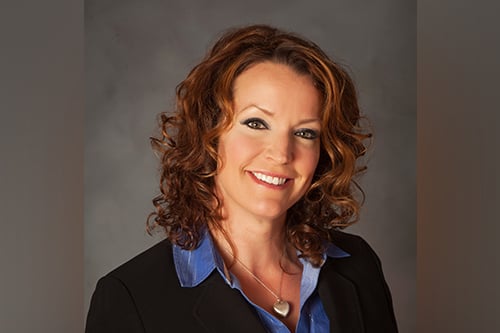We reconnect with originator Norah Lile after her first year in business

As anyone who has started their own business will tell you, the first year is a bit of a slog. It’s exciting, but it also involves a lot of long hours, and can be full of frustrations and false starts.
Norah Lile knows the reality all too well. One year ago she launched Integrity Mortgage Co., and while she’s run into some road blocks, she has no regrets.
“I wouldn’t want it any other way than to have my own shop. I think it really suits my personality, but it hasn’t been without some bumps in the road for sure,” Lile said.
She’s faced two major bumps. The first has been trying to weed out good relationships from bad ones, particularly when it comes to working with wholesalers. She’d send them business, only to end up disappointed with their service, and she’d have to switch tracks and find another.
Her other major bump has been sorting through all of the “shiny objects” and subscriptions that claim to revolutionize her workflow and bring in more business. Everything sounds great, but she’s had a hard time deciding what is worth the (often significant) investment.
“I’m just such a frugal person in general, and any expense that I have, it affects my clients because it’s got to come from somewhere. So I’m just so sensitive to that I’ve kind of ended up not buying [much of] anything, or have not been happy with what I did buy.”
She has secured the basics—an LOS and a CRM— and she’s now looking into various options for automation, which she believes will help her be more efficient. She still wants to make the necessary calls, she said, but automated milestones and other services will help her ensure that nothing falls through the cracks. Incorporating automation will also help her to keeps pace with both her individual competitors as they up their respective games, and with bigger mortgage companies that have more access to resources.
She has been taking advantage of marketing help offered by wholesalers, using those white labeling services that allow her to plug in her photo, logo, and company information onto their material. That’s just one more thing that she doesn’t have to think about, meaning she can pass along the money saved to her borrowers, and use the time saved to find more partners.
Lile is a former underwriter, and while she says that extra bit of knowledge seems to give her some clout when she first meets people, it hasn’t proven to be a huge advantage in terms of relationship building. In fact, it’s been a bit of a mixed bag in general.
“I have to remind myself constantly, I’m not the underwriter on this loan. I think, well, I wouldn’t make that decision; but it doesn’t matter because I’m not underwriting the loan anymore. It’s a mental block.”
Having an underwriting background may give her a little extra credibility to get her foot in the door, but once she’s in, she still has to prove herself among an increasingly competitive field of mortgage originators, all of whom are vying for referral business.
Because of this, she’s gotten much better at the sales and customer service side of the business. Taking care with the simple things that everyone overlooks has made all the difference, she said.
“Making sure to answer your phone, whether you want to or not. Making the hard calls, because bad news doesn’t get better with time, to quote my mother, so just making sure you don’t drag your feet on making calls that you don’t want to make. Also, making the cold calls you don’t want to make, just picking up the phone and doing those. And everybody knows these things and touts them, it’s just putting them into practice.”
Lile says that the biggest change in her business from a year ago isn’t due to any one thing that she’s done. Instead, it’s the simple passage of time. Other successful originators told her that the best referrals come from past clients. But the first step to that is getting clients in the first place, and now that Lile has built a solid customer base, she is starting to see that natural progression.
The part year has gone better than Lile thought it would. She expected that she’d have to take a pay cut when she launched her own shop, but her income was comparable to what she was making on the ops side of the business, and it’s only going to grow. Her production continues to increase, and both her production and referrals from her partners are becoming more consistent. In the end, she wouldn’t have done anything differently.
Well, maybe one thing.
“I would’ve moved to sales 10 years ago, just because it just takes so much time to get out there, get known. Now my customers are starting to refer other customers,” Lile said. “I just think it’s something that it just grows every year based on you doing a good job.”



